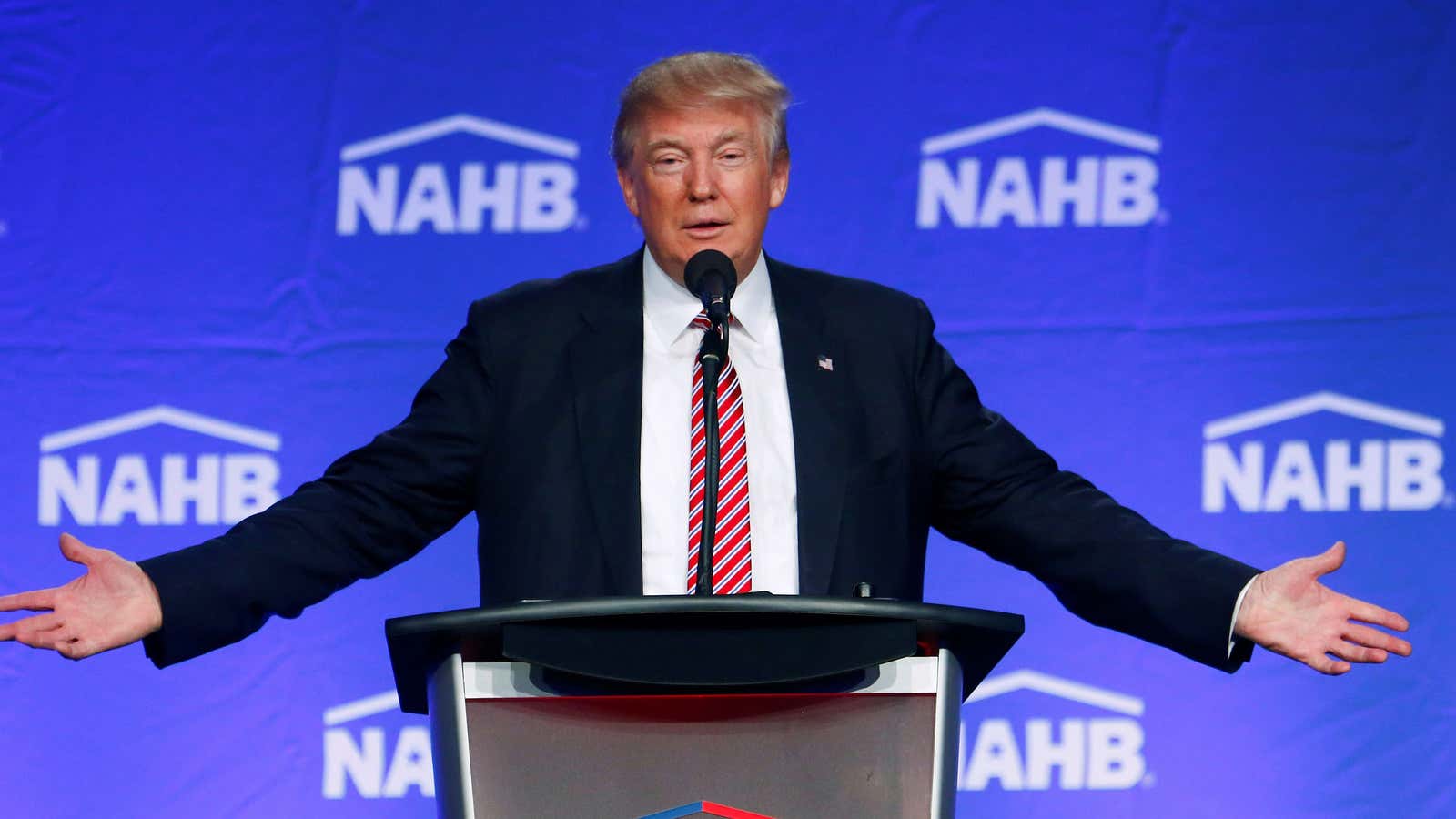A week after US president Donald Trump canceled a planned June 12 summit with North Korea’s Kim Jong-Un, the meeting appears to be back on again today, with Trump scheduled to discuss it with Japan’s prime minister, Shinzo Abe, on June 7.
Amid all this back and forth, many are asking what China, North Korea’s only official ally and neighbor to the north, hopes will happen next. Chinese Communist Party officials have been mum in recent days, but the Global Times, China’s nationalistic and sometimes belligerent tabloid paper, isn’t holding back.
Trump’s “capricious” decision to cancel the summit and “reckless backtracking” is damaging the US’s image worldwide, according to a May 28 editorial. The US president acted in order to counter the impression he was being “hoodwinked” by North Korea, it said, but the uncertainty could “jeopardize the US’ credibility in the global community” and make Trump “lose faith among his people, which will be disastrous.”
The Global Times is not the official paper of the Communist Party (that’s the People’s Daily) so its words shouldn’t be taken as if they’re coming directly from president Xi Jinping. But it is owned and published by the People’s Daily, and run by a former army officer and current Communist Party member. Its editorials often reflect “what party officials are actually thinking, but can’t come out and say,” the paper’s editor told Quartz in 2016.
The Trump administration’s China experts, many of whom have spent little time working or living in China, may not know the difference, or care, but Beijing is clearly invested a successful US-North Korea meeting. The most powerful country in the region, China also played a key role in tougher sanctions against North Korea that led up to the planned meeting.
Another recent editorial in the Global Times takes a less combative, but still critical, tone. “Maximum pressure is becoming the trump card of Trump’s team,” it warns. “It may help the White House make some breakthroughs in difficult negotiations, but won’t help it gain any substantial result it wants. Negotiations are aimed at looking for consensus, not one side conquering another.”
